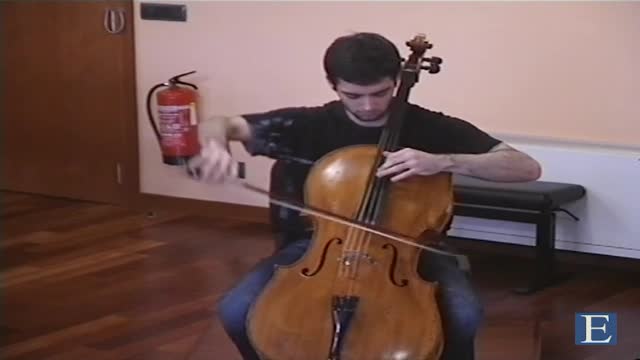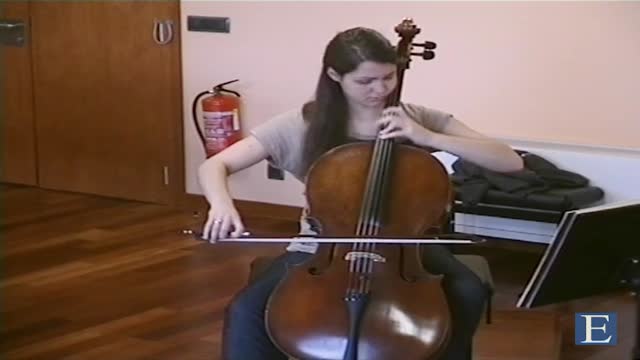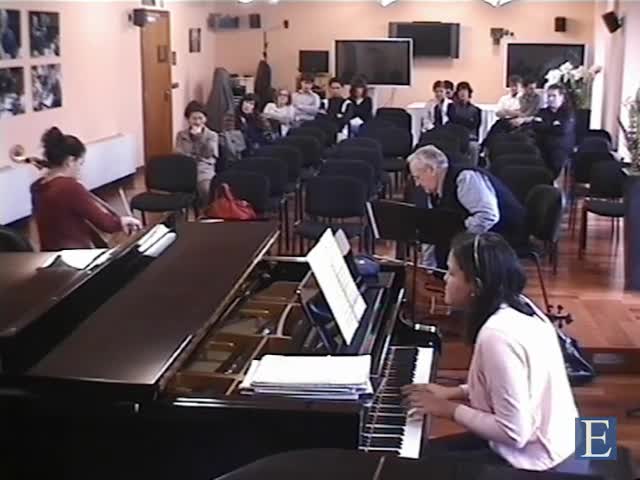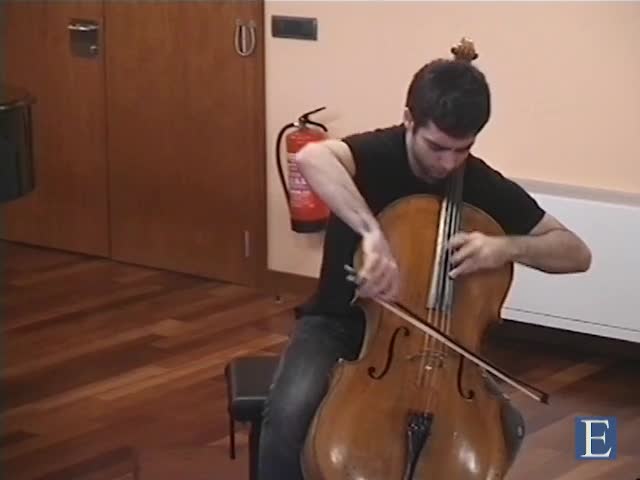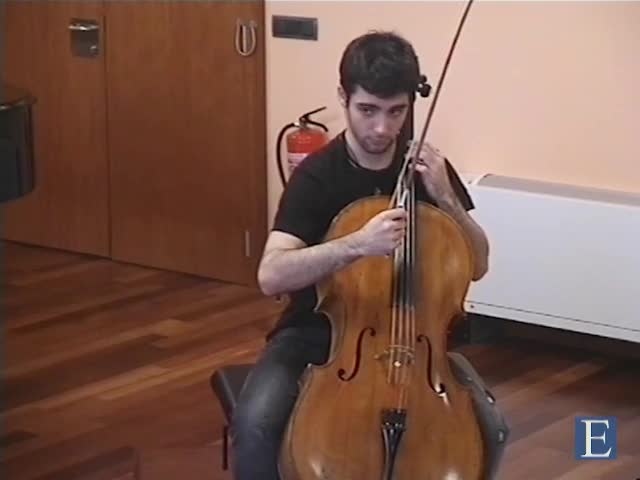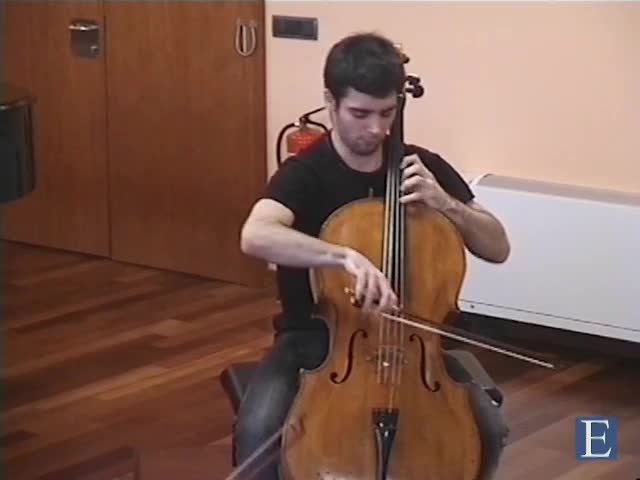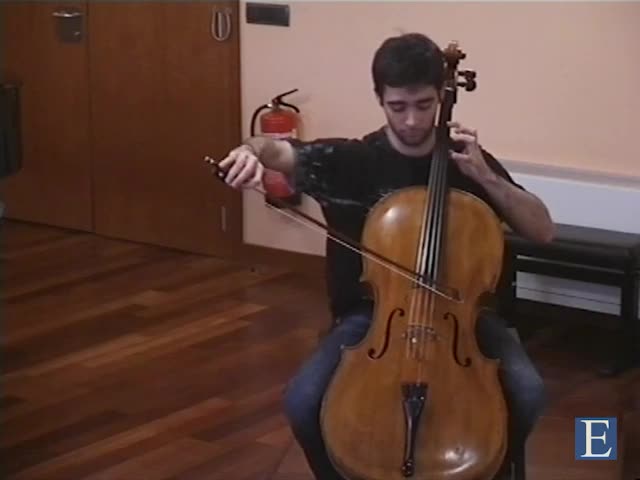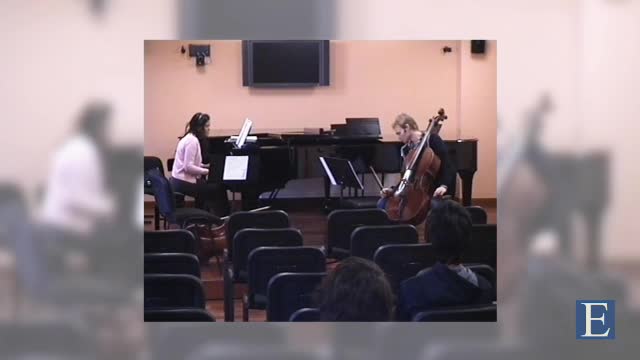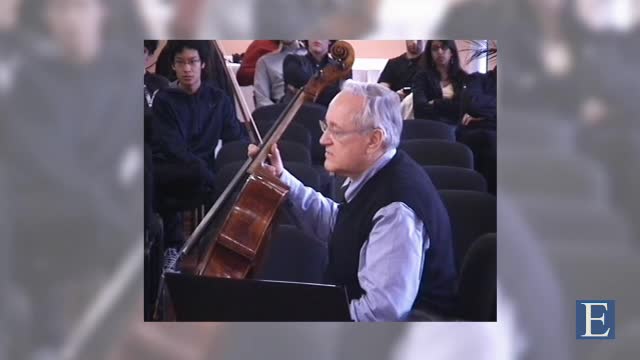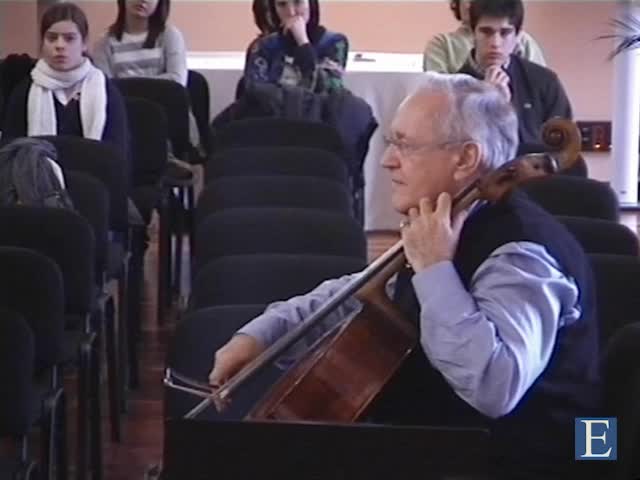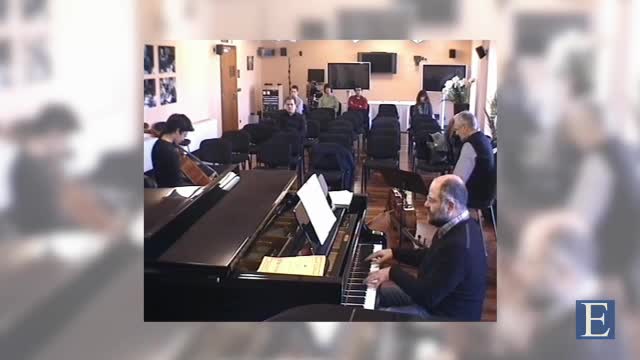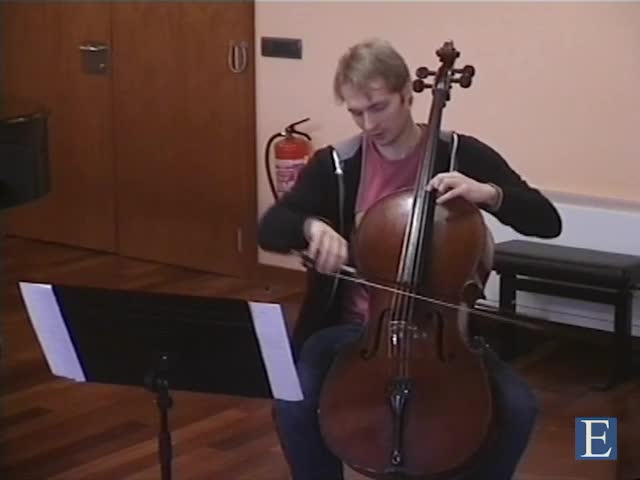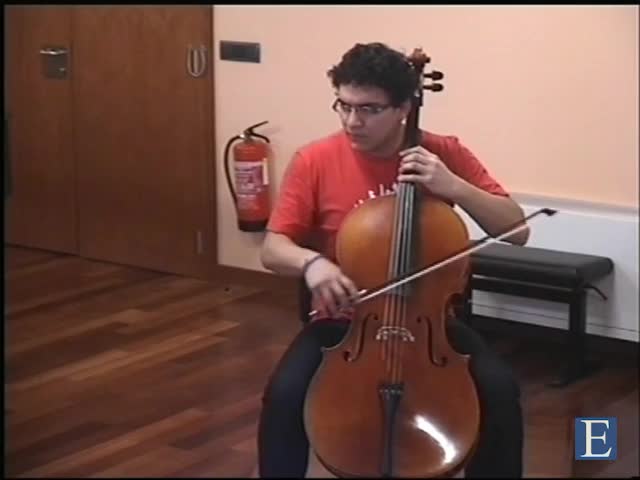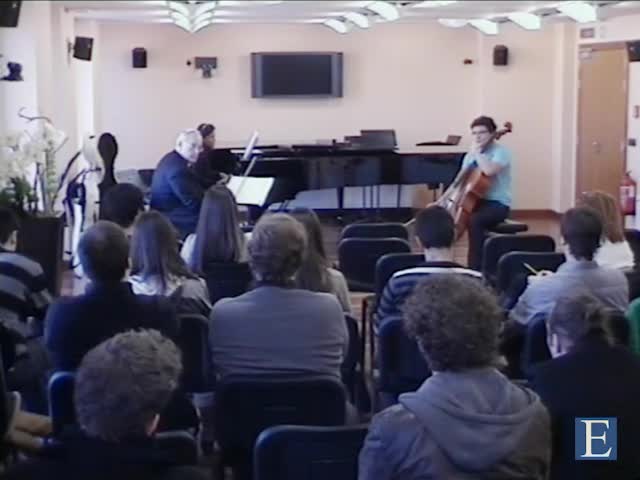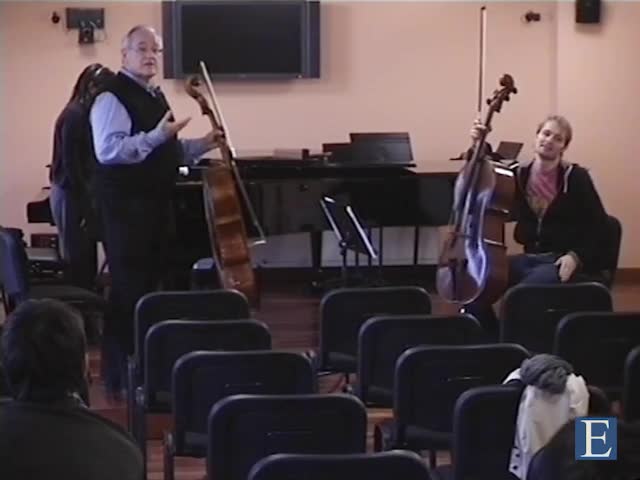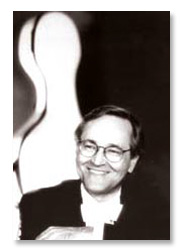
One of four musically-talented brothers, David Geringas began learning the cello at the National M.K. Čiurlionis School of Art in Vilnius, where children receive a general education whilst specialising in music, ballet or art. At the end of his schooling he made his début with the Lithuanian National Philharmonic Orchestra and entered the Moscow Conservatory under Rostropovich. His lessons were extremely demanding, Rostropovich expecting students to learn music rapidly and in the context of symphonic and operatic works. Geringas flourished under this regime and continued the lessons for five years after graduating from the conservatory.
Known also as a teacher and conductor, Geringas is established as a significant figure in the sphere of new music and has given premières of several important compositions. His 2007 recording of Schnittke’s bleak Sonata No. 1 has, in the middle movement in particular, a dark, almost brutal quality that cannot fail to affect the listener. He and his pianist wife Tatjana both evidence understanding of Schnittke’s intense and at times terrifying musical soundscape.
Geringas also professes an interest in early music and its performance on period instruments, including the baryton and violoncello piccolo, and his 1988 Boccherini recording listed above won a coveted Grand Prix du Disque. His discography, though, displays an obvious enthusiasm for the Romantic cello literature, which he performs with great energy and a notable fleetness of the left hand. Geringas’s approach to this repertoire exhibits all the standard twentieth-century understanding of Romanticism in a penchant for drama and a rich, powerful tone with plenty of vibrato. This works quite cleanly and crisply in the Beethoven sonata (2008) selected here, with a bright tone in the first movement Allegro con brio for example, whilst the Mendelssohn sonata (2010) is brilliantly executed, the duo setting a cracking pace in the outer movements (at the expense of some low-register clarity) with a suitably light and nimble scherzando second movement. The slow movement is thoughtfully declaimed, albeit with a rather massive piano tone at the opening on a thunderous modern instrument far removed from those Mendelssohn would have encountered. Rachmaninov’s Sonata (2008) is well rendered too, although Geringas’s tone on this recording is rather ‘buzzy’ on the A-string. This is, however, playing of the highest order in a work that well displays Rachmaninov’s speciality in deep, epic nostalgia and a certain self-indulgent angst that makes for compelling listening.
© Naxos Rights International Ltd. — David Milsom (A–Z of String Players, Naxos 8.558081-84)
